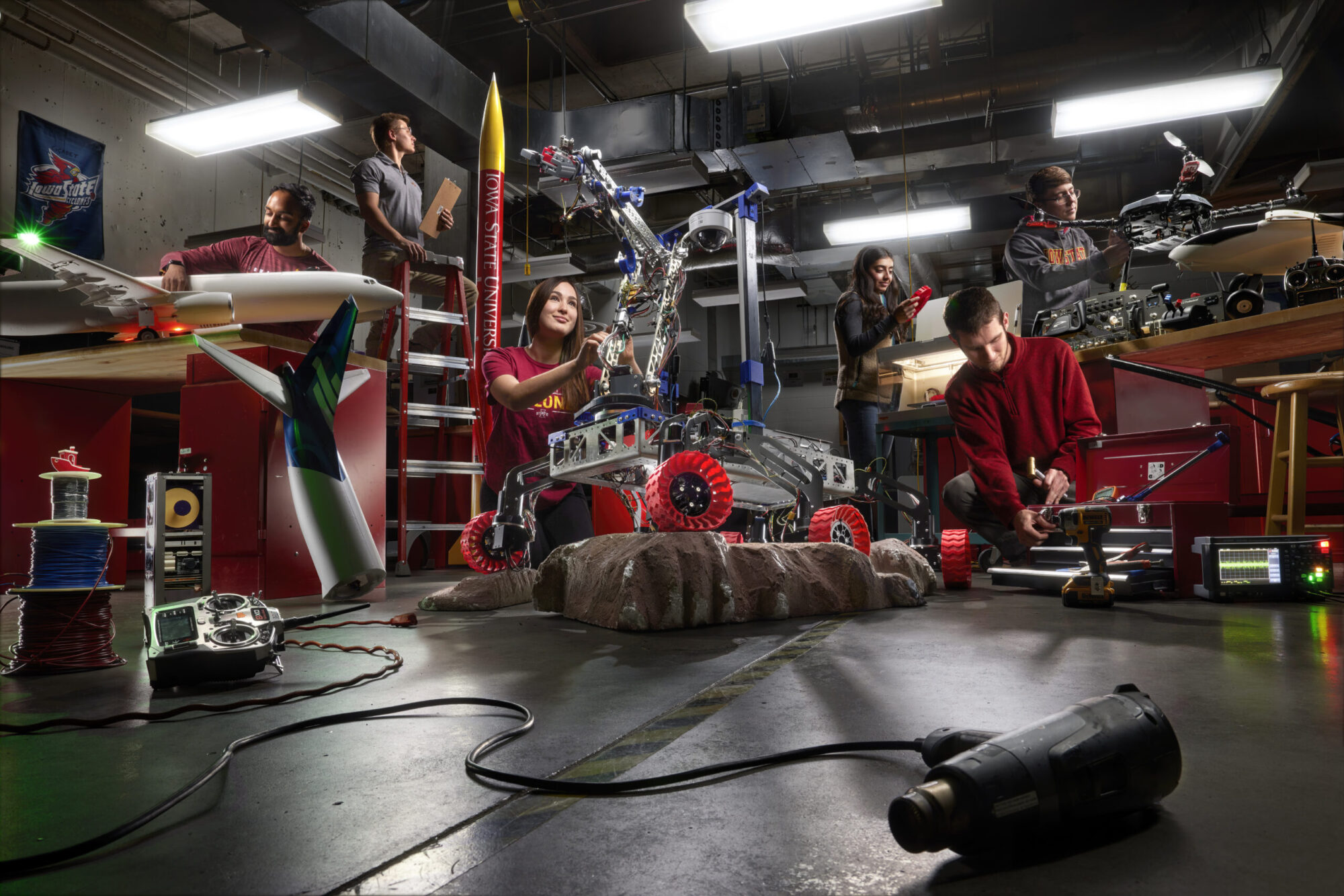About Us

Make to Innovate (M:2:I) is a program in the Aerospace Engineering Department at Iowa State University. Students gain real-world experience, develop hands-on skills, and work with companies to gain proficiency in tasks highly sought after in industry. Students can join from all disciplines including engineering, business, science, and design to work on these different projects. These projects are designed to reach goals such as launching a rocket, building an analog Mars rover, developing a satellite for technology demonstration in LEO, and much more.
The program is a course under the AerE 2940 and AerE 4940 course designations. However, this course is taught in a “flipped classroom” approach, in which there are no set lectures, and the instructor, along with faculty and technical advisors, helps guide students in working through engineering problems they are trying to solve. Students submit weekly reports and monthly project evaluations, conduct outreach, and learn from others to evaluate the student’s progress and expand the student’s knowledge.
Projects within Make to Innovate currently fall into four categories: Industry-driven, research-driven, service-driven, and competition-driven. One example of a competition-driven project is MAVRIC. They are currently pursuing entry into the University Rover Challenge (URC). When projects can compete against students of similar skill sets, it’s a great way to show off the students’ accomplishments and see how the finalization of the project performs. This competition’s goal is to allow the rover (in this example) to earn points as they complete a series of tasks. An example of a task expected from the rover would be analyzing soil samples for a specific substance, manipulating tools to complete repairs, drilling into the ground, and driving autonomously.
When did M:2:I begin?
M:2:I began thirteen years ago in the Fall Semester of 2011. The Aerospace Engineering department chair at that time, Dr. Richard Wlezien, wanted to create a program that gave students hands-on experience in engineering. This program would unify several projects and student groups in the department under one program. Matthew Nelson, a member of the Aerospace Engineering staff at that time, was tasked with starting the program. Dr. Wlezien helped to support the program with initial funding and securing a workspace that Make to Innovate could call home. Overseeing the current program is Professor Matthew Nelson, who serves as the program director, and Christine Nelson, who serves as the program coordinator.
How is M:2:I funded?
Make to Innovate is supported and sponsored by multiple funding sources. We have corporate sponsorship from Boeing and Collins. The program is also supported by the Aerospace Engineering Department at Iowa State University. Finally, additional support has come from the Iowa Space Grant Consortium. If you are interested in supporting the Make to Innovate program, please get in touch with Matthew Nelson at mnelson@iastate.edu



How do I join Make to Innovate?
We have a page dedicated to helping students interested in joining Make to Innovate. Please visit this page.
Who runs the M:2:I program?
Make to Innovate is administrated through the Aerospace Engineering Department at Iowa State University. Make to Innovate is successful because of the talented faculty and staff involved with the program. Please visit our directory page for a listing of those that help make Make to Innovate a success. Matthew Nelson and Christine Nelson are both faculty involved in Make to Innovate.
Matthew graduated from Iowa State University with his B.S. in Electrical Engineering and continued his education with a Master of Science in Electrical Engineering from Iowa State. He is currently working on a Ph.D. in Human-Computer Interaction, emphasizing Education. Christine graduated from Iowa State University with a B.S. in Aerospace Engineering as an alum of the Make to Innovate program . She continued her education with a Master of Engineering in Engineering Management from Iowa State. Matthew’s educational background allows for him to be a sounding board on electrical questions that all student groups have. In addition, Christine’s background allows students to reach out on managerial and interpersonal questions.
